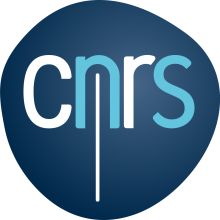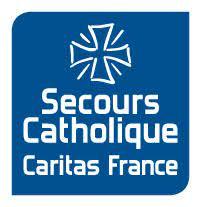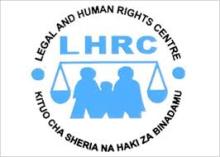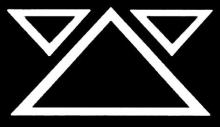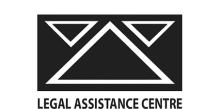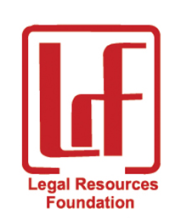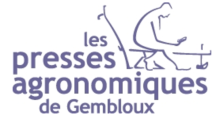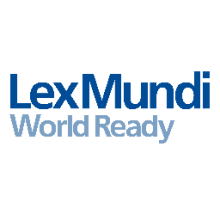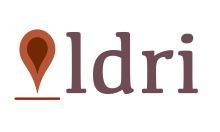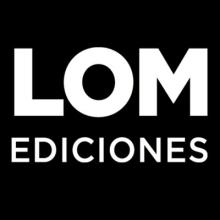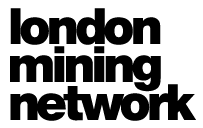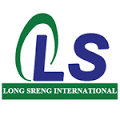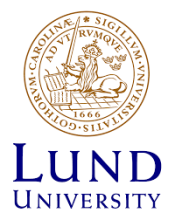Le bibliothèque du foncier comprend des ressources provenant de plus de 1 890 fournisseurs d'informations nationaux et internationaux. Découvrez les organisations et les institutions qui utilisent le Land Portal pour partager leurs recherches, leurs données et leurs histoires en libre accès.
Le Centre national de la recherche scientifique, France
Le Centre national de la recherche scientifique est un organisme public de recherche (Établissement public à caractère scientifique et technologique, placé sous la tutelle du Ministère de l'Éducation nationale, de l'Enseignement supérieur et de la Recherche). Il produit du savoir et met ce savoir au service de la société.
Sa gouvernance est assurée par Alain Fuchs, président du CNRS, assisté de deux directeurs généraux délégués : Anne Peyroche à la science, Christophe Coudroy aux ressources, et d'un délégué général à la valorisation : Nicolas Castoldi.
Avec près de 32 000 personnes (dont 24 617 statutaires - 11 106 chercheurs et 13 511 ingénieurs, techniciens et administratifs), un budget pour 2015 de 3,3 milliards d'euros dont 769 millions d'euros de ressources propres, une implantation sur l'ensemble du territoire national, le CNRS exerce son activité dans tous les champs de la connaissance, en s'appuyant sur plus de 1100 unités de recherche et de service.
Avec 20 lauréats du prix Nobel et 12 de la Médaille Fields, le CNRS a une longue tradition d’excellence. Chaque année le CNRS décerne la médaille d’or, considérée comme la plus haute distinction scientifique française.
- 2015, une année avec le CNRS :
- Téléchargez le rapport d'activité (juillet 2016 - pdf - 3,1 Mo).
- Données chiffrées et indicateurs (juillet 2016 - pdf - 2,5 Mo).
- Bilan social et parité ;
- Textes fondamentaux sur l'organisation du CNRS.
Le Hub Rural
The Hub’s goal is to assist West and Central African stakeholders (States, Inter-governmental Organisations, Civil Society Organisations and Development Partners) to promote coherence in rural development programmes worldwide.
Le Secours Catholique-Caritas France
Le Secours Catholique-Caritas France est une association loi 1901 à but non lucratif, reconnue d'utilité publique depuis 1962. Service de l'Église Catholique, elle fonde son action sur l'Évangile et la doctrine sociale de l'Église.
En France, le Secours Catholique couvre l’ensemble du territoire, grâce à ses 3700 équipes locales réparties en 75 bureaux locaux appelés "délégation".
À l’international, l’association est membre de la confédération Caritas Internationalis présente partout dans le monde à travers ses 165 Caritas membres. Le Secours Catholique-Caritas France développe ses actions à l’étranger en lien étroit avec ces Caritas nationales.
Learning Institute
The Learning Institute promotes learning through high quality, practitioner-led innovative programmes. If your dream is to work in education, health and social care or children’s services, The Learning Institute can help.
Our courses
Based in the South West of England and operating throughout the UK, we offer a range of foundation degree courses and initial teacher training. Our courses are run locally, and are designed to fit around work and family life.
At The Learning Institute we treat all students as individuals, not statistics. We provide a nurturing environment and dedicated tutors. We offer a wide variety of programmes designed to cater for everyone, from people who are already working in education or health and want to further their career prospects, to those who are still planning their futures. Police officer or office worker? Returning to education or recent school leaver? We are certain that you will find a programme that suits your needs.
Legal and Human Rights Centre
The Legal and Human Rights Centre (LHRC) is a private, autonomous, voluntary non-governmental, non-partisan and non-profit sharing organization envisioning a just and equitable society. It has a mission of empowering the people of Tanzania, so as to promote, reinforce and safeguard human rights and good governance in the country. The broad objective is to create legal and human rights awareness among the public and in particular the underprivileged section of society through legal and civic education, advocacy linked with legal aid provision, research and human rights monitoring.
The Legal and Human Rights Centre (LHRC) was established in 1995 out of experiences and lessons generated from The Tanzania Legal Education Trust (TANLET) and the Faculty of Law of the University of Dar es Salaam (UDSM). The founders of the LHRC were young lawyers who had participated in the legal Aid Committee of the Faculty of Law of the University of Dar-es-salaam and its legal Aid camps. They were somehow disillusioned by the nature of the State and its policies which were increasingly departing from the interests of majority of the people. They observed increasing human rights violations such as, land evictions of Maasai pastoralists, human rights abuses to the people of Hanang whose land had been acquired by the government and turned into big wheat farms of NAFCO. There also were alarming numbers of citizens being in conflict with the law mainly due to ignorance of the law. The human rights camps started to build awareness on Human Rights issues as clearly such issues were not known. TANLET founding members who were also public servants working as lecturers with the University of Dar es Salaam (UDSM) thought of the risks involved in challenging the State, hence the idea of setting an independent human rights centre.
Since then LHRC has grown to be known as a leading human rights organisation, human rights watch dog, pace setter, bold and serious organisation as well as flag bearer of human rights in Tanzania.[1] LHRC’s headquarters are based in Dar es Salaam and has a sub office in Arusha. Its operations are mainly focused in Tanzania mainland with specific interventions in Zanzibar. LHRC is a member of different national, regional, international NGOs Networks and human rights bodies. The LHRC has an observer status with the African Commission on Human and Peoples Rights since 2000
Broad Objectives: For the LHRC to be able to forge its way in the realisation of its mission, it has a broad objective of creating legal and human rights awareness and empowerment among the general public and, in particular, the underprivileged sections of the society through legal and civic education, advocacy, research, follow up of human rights abuses and provision of legal aid.
Legal Assistance Center Namibia
LAC Assists People from All Walks of Life
The LAC's main objective is to protect the human rights of all Namibians. It is the only organisation of its kind in Namibia. It has an office in Windhoek, Namibia's capital. It is funded primarily by national and international donor organisations. Its work is supervised by the Legal Assistance Trust, whose trustees include legal practitioners, other professionals and community leaders.
It works in five broad areas:
Legal Assistance Centre
LAC Assists People from All Walks of Life
The LAC's main objective is to protect the human rights of all Namibians. It is the only organisation of its kind in Namibia. It has an office in Windhoek, Namibia's capital. It is funded primarily by national and international donor organisations. Its work is supervised by the Legal Assistance Trust, whose trustees include legal practitioners, other professionals and community leaders.
It works in five broad areas:
Litigation
The Legal Assistance Centre is a public interest law firm based in Windhoek.The LAC only takes on public interest cases. A public interest case is a legal case which will have a wider impact on the community than just assisting the individual concerned. Such a case may establish a new legal rule, which will change the law for the entire country or address a discriminatory policy or practice. Or it may attract attention to a problem that is affecting many people.
Examples of cases taken up by the Legal Assistance Centre include:
- The right of a school learner to return to school after her child was born
- The right of an accused in a complicated criminal trial to obtain legal aid
- The right of a widow to keep the land she lived on during her marriage after the death of her husband
- The right of a HIV-positive person not to be dismissed from employment based on their HIV status
Even if we cannot help you with your case, we may be able to give you information on your rights and on steps you can take to help yourself.
Legal Information and Advice
We provide legal information and advice on human rights in the following areas:
- HIV/AIDS - including advice on what to do if you are discriminated against, information on workplace policies, access to treatment for HIV.
- Gender Equality - including information on rape, domestic violence, sexual harassment in the workplace, inheritance, marriage, divorce and maintenance.
- Human Rights and the Constitution - such as the right to basic education, the right to health, citizenship, immigration issues and the right not to be tortured or ill-treated.
- Land, Environment and Development - including inheritance, conservancies, illegal fencing, environmental issues, and issues affecting especially disadvantaged groups such as the Himba and the San.
If you want to speak to a paralegal about a legal issue you are concerned about, phone us at +264-61-22-3356 or come to the office at 4 Marien Ngouabi, Windhoek. The office is open for basic advice from Monday to Friday, 08h00-11h30, and 14h00-16h00 (on Fridays the office closes at 15h00).
Education and Training
We also run training workshops for communities and service providers (such as legal officials, traditional leaders, school principals, police and social workers) on:
- Gender - friendly laws including rape and domestic violence
- Communal Land Reform Act and conservancy-related legislation
- HIV/AIDS and rights
- Basic human rights training
Research
The LAC also carries out research, particularly on the need for new laws and the implementation of existing laws. Some recent research reports which are available are:
- Namibian Law on LGBT issues
- Scraping the Pot: San in Namibia
- Access to Justice series
Law Reform and Advocacy
We advocate for law reform based on our research. Examples of laws which the LAC
contributed to and advocated for are:
- Combating of Rape Act
- Combating of Domestic Violence Act
- Maintenance Act
- Non discrimination on the basis of HIV in the Labour Act
- Child Care and Protection Act
Free of Charge
All our services are free of charge.
Donations are very welcome.
Legal Entity Assessment Project
LEAP came into existence in 1988 when a group of KwaZulu-Natal land practitioners from NGOs, government and the private sector began to focus on why the communal property institutions (CPIs) set up under land reform appeared to be failing. The Legal Entity Assessment Project, as it was initially known, questioned the widely held view that the land reform communal property associations (CPAs) and trusts needed capacity building. Instead, LEAP argued that there were no clear indicators for assessing success or failure and that these micro institutions were overloaded with development objectives that often were the proper responsibility of government. In the search for firm foundational objectives, LEAP suggested that tenure security for individuals and the group as an entity was the primary purpose of CPIs, and that other development objectives could be built on this foundation.
Thinking practically and conceptually about how to achieve this took LEAP on a long journey that gradually pulled in people from across the country in both the rural and urban sectors who were working on land administration, customary tenure, housing and tenure arrangements.
LEAP is no longer in existence but its work remains of value to current initiatives to reform and secure tenure and recognise off-register rights in South Africa. Key documents from its archives have been uploaded to the Land Portal.
Legal Resources Centre
The Legal Resources Centre (LRC) is South Africa’s largest public interest, human rights law clinic. Established in 1979, we use the law as an instrument of justice for the vulnerable and marginalised, including poor, homeless and landless people.
Legal Resources Foundation Trust
PROMOTING HUMAN RIGHTS AND ACCESS TO JUSTICE
Our Vision
"A just and equitable society”.
This is a society that respects and upholds human rights, ensures justice and equity for all especially the poor, vulnerable and excluded members of society either as individuals or groups.
Our Mission
Inspired by the vision, the mission of LRF is to be a;
"Resource for justice for the poor, vulnerable and marginalized through participatory interventions and mutual partnerships”
Our Core values
Our day to day operations are inspired by the belief on basic human rights principles and guided by the following Core values embedded in the organizational culture.
Equity
- Exercising fairness in all relationships and processes
- Providing equal opportunities irrespective of differences in color, race, gender, age, political opinion, social, economic, health status, mental or health abilities, etc.
- Exercising affirmative action in favor of both wo/men
- Integrity
- Zero tolerance to corruption and sexual harassment
- Honesty in the use and management of both human and material resources
- Quality delivery on mutually agreed promises and obligations
- Full disclosure and surrender of gifts received during the course of work to LRF
- Solidarity with the Poor and Excluded
- Respecting, valuing and protecting the dignity and integrity of the poor, vulnerable and marginalized
- Understanding poverty as a violation of basic human rights
- Teamwork
- Providing leadership and ownership of LRF’s corporate identity
- Taking responsibility for agreed actions within the agreed time
- Celebrating and recognizing individual and collective victories
- Consistency in communicating and implementing the organizations values, principles, policies and procedures
- Providing, building and maintaining open, honest, direct and feedback channels of both formal and informal communication and interaction
- Building on and being tolerant to diverse views and opinions
Legal Services of the Caribbean Community
Welcome to the newly redesigned website of Legal Services of the Caribbean Community (CARICOM) Secretariat. CARICOM Law is intended to provide updated and accurate information to Member officials, Attorneys-at-Law, students and the general public regarding developments in Community law and jurisprudence.
This is an exciting time in the development of CARICOM jurisprudence. Our unique path to regional integration is reflected in our membership, our structure and Institutions, and now, the rapidly growing body of Community law, expressed in our legal Instruments, Community decisions and Court judgments.
This site comprises a database of all Community instruments – treaties, agreements and other legal documents – as well as national legislation submitted by our Members. Our newsletter, CARICOM Chambers Quarterly (CCQ), will be continued to be published online at this site.
In addition to the freely available information and legal resource materials, CARICOM Law will be an important working tool for the Community in the review and preparation of legal instruments, with facilities for registered users including discussion fora and access to restricted documents.
LEGEND
About us
"Building a world where people, in particular women, and responsible businesses have secure land tenure rights to invest, thrive and contribute to inclusive and sustainable economic development."
Land: Enhancing Governance for Economic Development (LEGEND) is a £38mn DFID global programme running from May 2015 to March 2021. LEGEND was designed to mobilise knowledge and capacity for design and delivery of new land-related programmes, improve land governance as an essential and inclusive basis for economic development, and strengthen land and property rights at scale.
LEGEND
LEGEND aims to improve the quality and impact of land investments so they contribute sustainably to growth while safeguarding rights and opportunities for poor people, rural and urban, and especially women. It has done this through: building policy coherence globally using internationally agreed principles and guidelines, such as the VGGT and CFS RAI principles; promoting application of emerging good practice emerging across countries; and stimulating the development of innovative tools and partnerships involving civil society, private sector and governments at global, country and local levels.
Lehigh Preserve
The repository is a service of the Lehigh University libraries. Research and scholarly output included here has been selected and deposited by the individual university departments and centers on campus.
LEISA
LEISA revista de agroecología es una de las siete revistas que sobre la pequeña producción agrícola sostenible se publican con el auspicio de la Fundación ILEIA y que circulan en varias regiones del mundo.
Es una publicación trimestral editada por la Asociación Ecología, Tecnología y Cultura en los Andes (ETC Andes) desde 1996 LEISA propiciael uso óptimo de los recursos locales y de los procesos naturales y, en caso necesario, el uso eficiente de insumos externos. Propicia además la interacción e integración entre el saber local y el universal.
Les Presses agronomiques de Gembloux
« Depuis 1964, les Presses agronomiques de Gembloux publient et diffusent des ouvrages scientifiques relevant des sciences agronomiques au sens le plus large et dont la plupart des auteurs appartiennent au CRA-W, au DEMNA, à GxABT, ou à l'AIGx. Depuis 2004, elles intègrent l'Open Access dans leur programme éditorial. »
Lexington Books
Lexington Books takes great pride in its unwavering commitment to publishing specialized research essential to advancing scholarship at a time when many academic publishers have abandoned this part of their programs. We continue to publish high-quality peer-reviewed monographs and edited collections by established and emerging scholars, works that may not have a wide audience but make a significant contribution to scholarship in the humanities and social sciences. Browse our website to see the wide range of offerings.
Lexington Books publishes both standalone titles and titles in a broad array of series that span the social sciences and humanities.
Libros del Zorzal
Durante sus 10 años de vida, Libros del Zorzal construyó un catálogo con 250 títulos, y autores de la talla de Pierre Bourdieu, Silvia Bleichmar, Ivonne Bordelois, Noam Chomsky, Jean Baudrillard, Jacques Rancière, Alicia Dujovne Ortiz, Luis Chiozza, René Goscinny, Eliahu Toker, Michel Onfray, Françoise Dolto, Georges Perec, entre tantos otros.
Los editores de este proyecto participaron en más de 50 ferias internacionales en Guadalajara, Barcelona, Frankfurt, Nueva Delhi, Seúl, Abu Dhabi, París, La Habana, Caracas, Torino. Sus libros se exportan a toda América Latina y España, y han sido traducidos al francés, inglés, italiano, griego y checo. En febrero de 2010, Libros del Zorzal vendió su ejemplar número un millón.
La editorial surgió como una ilusión que vio la luz en el fondo del túnel gracias al entusiasmo de mucha gente. De familiares, de amigos y de maestros, que creyeron en todo esto desde los más tempranos inicios; que ofrecieron su compañía y ayuda desinteresada con afecto y confianza. Esa ilusión se alimentó, sobre todo, con la inspiración de los lectores, a quienes no conocemos personalmente. Sin embargo, queremos decirles que el privilegio que sentimos de poder llevar adelante este proyecto editorial implica una enorme responsabilidad: la que asumimos de editar cada día mejor, desde nuestra oficina del Abasto, a metros de la estación de subte Carlos Gardel.
LICOS Centre for Institutions and Economic Performance
LICOS Centre for Institutions and Economic Performance is a research centre of the Faculty of Economics and Business at the University of Leuven (KU Leuven). Since its foundation in 1991 research at LICOS has focused on theoretical and empirical research of micro- and macro-economic aspects of transition, institutional changes and economic performance across the world.
In line with our University's mission statement, LICOS is internationally oriented and is working together with other research centres and institutes in Europe and throughout the world.
Over the past two decades LICOS research has resulted in a large number of international journal publications and books and has influenced policy-making in various countries and at international institutions.
Since 2004 more than 25 researchers obtained their PhD at LICOS and have since been hired by prestigious academic institutions and international organizations such as the IMF, ECB, World Bank, European Commission, OECD, FAO, etc.
In 2003 LICOS was chosen as a Centre of Excellence by the European Commission and in 2005, LICOS was selected as one of the twelve Centres of Excellence by the KU Leuven. This was reinforced by two new Centre of Excellence grants. Since 2009, LICOS is benefiting from support of the Methusalem fund, a program by the Flemish government to support excellent and reputed researchers at Flemish Universities. In 2010, LICOS, the Center for Economic Studies (CES) and VIVES were jointly awarded a 7-year Program Financing scheme by KU Leuven.
Lincoln Institute of Land Policy
Finding answers in land
The Lincoln Institute of Land Policy is an independent, nonpartisan organization whose mission is to help solve global economic, social, and environmental challenges to improve the quality of life through creative approaches to the use, taxation, and stewardship of land. As a private operating foundation whose origins date to 1946, the Lincoln Institute seeks to inform public dialogue and decisions about land policy through research, training, and effective communication. By bringing together scholars, practitioners, public officials, policy makers, journalists, and involved citizens, the Lincoln Institute integrates theory and practice and provides a forum for multidisciplinary perspectives on public policy concerning land, both in the United States and internationally.
The Lincoln Institute's work is organized into three thematic areas:
A Brief History
The Lincoln Institute of Land Policy traces its origins to John C. Lincoln, a Cleveland industrialist and investor who in 1946 established the Lincoln Foundation in Phoenix, Arizona. He was intrigued by the writings of Henry George, as expressed in the book Progress and Poverty(1879), in particular George's ideas about land ownership and taxation. Lincoln created the Foundation to support other institutions in the teaching, research, and publication of information about George's work.
From the late 1940s through the early 1970s, the Lincoln Foundation sponsored a variety of university-based education and research programs on theoretical and applied economics and taxation. In 1966 the Foundation established the John C. Lincoln Institute at the University of Hartford in Connecticut, and in 1968 it supported the creation of the Land Reform Training Institute in Taiwan (renamed the International Center for Land Policy Studies and Training in 1998).
The Lincoln Institute of Land Policy was established as a school in 1974 and became the Foundation's primary grant recipient to develop multidisciplinary education, research, and publications programs. The Institute focused on property valuation and taxation policy, urban planning and development, land economics, and property rights. To expand its work internationally, the Institute established the Program on Latin America and the Caribbean in 1993 and the Program on the People's Republic of China in 2003.
In 2006 the Lincoln Foundation and the Lincoln Institute of Land Policy merged to become a private operating foundation. The organization continues its focus on research, publications, and training, while seeking a more active role in the conversations that shape public policy decisions.
Local Development Research Institute
Operational since 2015, Local Development Research Institute (LDRI) is an non-profit action-oriented think tank whose work contributes to the efforts of African governments to end extreme poverty, end hunger and reduce inequalities. With 65% of Africa’s labor force employed in the agriculture sector (which contributes approximately 30% of the continent’s GDP), widening inequality along gender lines and the increasing need to achieve food sufficiency for 1.5 billion people by 2020, it is clear that agriculture and the protection of women’s rights will be pivotal to achieving these objectives.
LDRI is therefore focused on the role and capacity of public sector institutions to deliver on the continent’s development agenda through multi-sectoral, multi-stakeholder and evidence informed approaches.
Our strategic objectives for the period 2016 to 2020 are:
- Strengthening the Africa data ecosystem to support the planning, monitoring and review of interventions to drive agricultural transformation in Africa.
- Supporting processes for evidence-informed policies in Africa that ensure the delivery of sustainable development for everyone.
- Building capacity of stakeholders to use and make their evidence open and accessible to others.
Local Governments for Sustainability
ICLEI - Local Governments for Sustainability is the leading global network of more than 1,500 cities, towns and regions committed to building a sustainable future.
By helping the ICLEI Network to become sustainable, low-carbon, resilient, ecomobile, biodiverse, resource-efficient and productive, healthy and happy, with a green economy and smart infrastructure, we impact over 25% of the global urban population.
Local Initiatives for Biodiversity Research and Development
Local Initiatives for Biodiversity, Research and Development (LI-BIRD) is a non-governmental organization (NGO) established in 1995 in Nepal. It capitalizes on local initiatives for sustainable management of renewable natural resources and helps improve the livelihoods of resource poor and marginalized people.
LI-BIRD has contributed to the development of approaches for participatory research and development, and has generated impacts that have enhanced the livelihoods of resource-poor farmers through technological and policy changes. LI-BIRD has strengthened techniques of Participatory Plant Breeding (PPB) and Participatory Variety Selection (PVS) for crop improvement and community-based biodiversity management.
LI-BIRD is recognised as a Centre of Excellence for its contribution in shaping national policy, and for developing good practices for conservation of agricultural biodiversity on-farm.
Loka Ahlinn
“We are a social development organization that works with civil society, government and businesses to bring about a society of active citizens supported by effective and democratic governance.”
Loka Ahlinn was formed by nine core members from educational backgrounds in 2006. It aimed to address the question of how to develop an education platform in Myanmar. Projects started in community management and training, including establishment of two training centres, in Yangon and Magway.
The organisation expanded operations in the wake of Cyclone Nargis in 2008, which devastated delta regions, communities and livelihoods. Projects were formed to aid recovery processes and livelihood development, during which time Loka Ahlinn grew to around 100 staff.
Loka Ahlinn was able to shift and refine its aim further to reflect changes in government policy from 2010 on wards. The current transition towards a more open and democratic society allowed us to establish projects to promote and protect human rights and to enable communities to have a voice in local decision making.
This included rule of law work in six districts of Myanmar and social development projects to strengthen civil society organizations around the country. Our work is grouped into tow thematic programme areas that aim to build a society of active citizens that can exercise their rights, and to improve the effectiveness of and participation in local governance.
Our logo
Our logo design reflects the aims and ambitions of Loka Ahlinn and for Myanmar society as a whole. The eight fingers of the hands represent the ‘88 student movement and everything the movement represents. Turned on their side, the hands become shaped like a peacock, symbolizing the popular people’s movement in Myanmar. The central heart stands for tenderness and love, and is a symbol of peace. The colors represent light, flying high and progressing forward.
Our work in context
Sixty years of totalitarian military rule have prevented the development of strong social institutions. This threatens the future of the reform process that began in 2010. Even though new spaces have opened, the military has retained a dominant place in the state under the 2008 constitution, and social institutions are still too weak to balance the “post-military” state.
We don’t know yet if this opening is permanent or genuine. The future of the country cannot be predicted. There are three scenarios: a formal return of the military regime, a reformed state that is controlled by a wider group of elites, or a consolidated democracy.
Loka Ahlinn is committed to building the preconditions for the third scenario, which will require the rebuilding of mutual trust between the state and the people.
There are three essential areas of reform that are not yet enacted:
1) Balancing the civil-military relationship
2) De-centralizing control of the state over society and ethnic minority states
3) Strengthening society so that it is able to balance and counter the power of the state.
Our analysis is that the key agents in these deep reforms are civil society, the political parties, the ethnic-minority populations, and public institutions.
We will directly engage with civil society where our experience, capacities and networks lie. During this strategic phase, we will particularly work to link traditional and apolitical social groups with social movements that demand political change and seek to balance to the power of the state. We will also focus our new work with public institutions at the local level where the immediate potential for state responsiveness and accountability are located. We will limit ourselves to strategic engagement with political parties as many others work programmatically with them.
LOM Ediciones
LOM Ediciones nace en 1990 como un proyecto de carácter cultural que fomenta la lectura, la creación, la reflexión, la memoria y el pensamiento crítico a través de la palabra escrita.
Desde entonces, busca contribuir a reponer al libro como centro de nuestro quehacer, intencionando con ello procesos educativos, potenciando sujetos curiosos, con mirada crítica del mundo, que les permita transformarse y transformar sus prácticas y las de la realidad que les toca vivir, capaces de ser creadores y actores de su sociedad. De este modo, desde sus inicios, LOM se ha propuesto hacer del libro un objeto interpelador y transformador.
Hoy, con más de veinticinco años, LOM Ediciones ha publicado más de 1.600 títulos. Entre ellos se puede encontrar la más importante colección de poesía chilena, así como textos imprescindibles y fundamentales en las áreas de la historia chilena y latinoamericana, filosofía, ciencias políticas, sociología, psicología, novelas y cuentos, memorias y testimonios, teatro, literatura infantil y juvenil, investigación periodística, humor, fotografía y artes, pedagogía y educación. Libros que buscan siempre convocar a los más amplios públicos.
La actual presencia que LOM Ediciones tiene en la escena cultural chilena y latinoamericana, se debe no solo a que ha logrado conformar un catálogo que reúne a nuevos autores, a connotados creadores e intelectuales chilenos y latinoamericanos, y a destacados clásicos de las letras universales, dentro de una enorme diversidad temática; sino también porque ha logrado ser un proyecto independiente, coherente y con una línea editorial consistente.
Tenemos la convicción de que el conocimiento y el acceso a la cultura es fuente de liberación, y que el libro debe ser un instrumento democratizador de nuestras sociedades. Por ello, desde los inicios, hemos apostado a una política donde nuestros títulos no tengan como obstáculo las capacidades adquisitivas de los lectores. Que el libro esté al alcance, tanto en forma, como en sus contenidos.
Loma Linda University
Core Values
The University affirms these values as central to its view of education.
COMPASSION—The sympathetic willingness to be engaged with the needs and sufferings of others. Among the most memorable depictions of compassion in Scripture is the story of the Good Samaritan, which Loma Linda University has taken as a central symbol of our work.
INTEGRITY—The quality of living a unified life in which one's convictions are well-considered and match one's actions. Integrity encompasses honesty, authenticity, and trustworthiness.
EXCELLENCE—The commitment to exceed minimum standards and expectations.
FREEDOM—The competency and privilege to make informed and accountable choices and to respect the freedom of others. God has called us not to slavery but to freedom.
JUSTICE—The commitment to equality and to treat others fairly, renouncing all forms of unfair discrimination. The God of the Bible is One who calls people continually to justice. According to the prophets, religious faith could be genuine only when it led the believers to "seek justice, rescue the oppressed, defend the orphans, [and] plead for the widow."
PURITY/SELF-CONTROL—The commitment to be morally upright and moderate in all things, with complete control over one's emotions, desires, and actions.
HUMILITY—The
London Mining Network
London Mining Network (LMN) is an alliance of human rights, development, environmental and solidarity groups.
We work for
- human rights, including the rights of Indigenous Peoples and workers, and
- sustainable development (development which meets the needs of the present without compromising the ability of future generations to meet their own needs in communities around the world affected by the activities of mining companies based in or funded from London
We do this by
- Monitoring abuses of human rights, Indigenous rights and workers’ rights in mining-affected communities, and seeking redress;
- Research into the impacts of mining on human rights, the environment and sustainable development;
- Raising awareness of the impacts of mining on human rights, the environment and sustainable development;
- Promoting public support for the rights of mining-affected communities;
- Promoting respect for human rights and the environment by mining companies;
- Advocacy on mining, human rights, the environment and sustainable development;
- Working to eliminate infringements of human rights by mining companies and bodies working in support of mining companies.
Why?
Mining is one of the most polluting industries in the world. It is linked with conflict and human rights abuses. Most of the world’s biggest mining companies, and many smaller mining companies, are listed on the London Stock Exchange, and on its Alternative Investment Market (AIM). For more information on London’s key role in the global mining industry, see our Mining and London page.
London School of Economics and Political Science
LSE is one of the world’s leading social science universities. We have committed to a strategy that will build on our strengths, address challenges and maintain our worldwide reputation for excellence.
We have already achieved many of the goals set out in our 2014 review, including:
- Strengthening our faculty, which has resulted in remarkable success in the Research Excellence Framework and major improvements in most research-based and reputational rankings.
- Investing in our LSE Careers service for LSE alumni.
- Opening a new PhD Academy to nurture the next generation of leaders.
- Launching four new institutes, including The Marshall Institute for Philanthropy and Social Entrepreneurship and The International Inequalities Institute.
- Starting a major redevelopment of our campus, featuring a state-of-the-art 13 storey building overlooking a new public square.
- We have not been standing still. But rapid changes are taking place in higher education, and we need to change accordingly.
Priorities for the future
The LSE’s future depends on enhancing our quality, our innovation, and our intellectual distinctiveness as a leading institution for social science.
Our 2020 Strategy sets out a roadmap for how we intend to meet these challenges.
Our strategic priorities are to:
1. Education
We will lead in the provision of excellent disciplinary and interdisciplinary education. See our Education Strategy for details.
2. Strengthening and supporting faculty and staff
We will continually improve faculty quality, research performance and intellectual innovation and enhance the quality of our professional service staff.
3. Equity, diversity and inclusion
We will strengthen our commitment to equity, diversity and inclusion and take relevant action throughout the institution.
4. Leading globally in social science
We will lead – and continue to be recognised as leaders – in innovative, international, interdisciplinary and issue-oriented social science.
5. Diversifying our revenue streams
We will enhance and diversify our revenue streams.
6. Developing our campus
We will secure an estate and other facilities commensurate with our standing and aspirations.
Long Sreng International
Long Sreng International Co.,ltd is private incorporation with its investment rncapital In rubber industrial in total area covering 7313.67 hectaresrnlocation at Prek Kak commune, StungrnTreng district, Kampong Cham province, in distance of 161 (kms) from Phnom Penh City .
In the annual plan 2008 to 2013, Long Sreng International Co.,ltd planted the rubber trees in its land area to complete the plan in total area covering 7313.76 heatres , Presently company is maintaining carefully with the technical standard .
Long Sreng International Co.,ltd is the leading rubber company in the Kingdom of Cambodia , of the rubber exploitation management , the rubber industrial area governed by Long Sreng International Co.,ltd till 2013, the total rubber area either the private company or household rubber are more than 25000 hectares with the capacity to produce rubber for export to the world’s market from 20000 to 30000 metric tons each year and payable into the national budget each year from 5 to 6 millions US dollar.
Long Sreng International Co.,ltd further invests in promoting and extending the rubber, and other agro-industrial crop to become the Kingdom of Cambodia in the agricultural and tourism Kingdom in the future.
Lund University
The University is ranked as one of the top 100 in the world. We tackle complex problems and global challenges and work to ensure that knowledge and innovations benefit society. We provide education and research in engineering, science, law, social sciences, economics and management, medicine, humanities, theology, fine art, music and drama.
Our 41,000 students and 7,500 employees are based at our campuses in Lund, Malmö and Helsingborg. The University has a turnover of around SEK 7 500 million (EUR 808 million), of which two thirds is in research and one third in education.
We are an international university with global recruitment. We cooperate with 600 partner universities in over 70 countries and are the only Swedish university to be a member of the strong international networks LERU (the League of European Research Universities) and Universitas 21.
Two major facilities for materials research are currently under construction in Lund: the MAX IV Laboratory, which will be a world-leading synchrotron radiation laboratory and ESS, a European facility that will be home to the world’s most powerful neutron source. These will be of decisive importance for materials and life sciences and for industrial development. In Lund, Medicon Village has also been established and will offer a unique environment for life sciences; integrating research, innovation and enterprise creates the conditions for improved health and quality of life.

